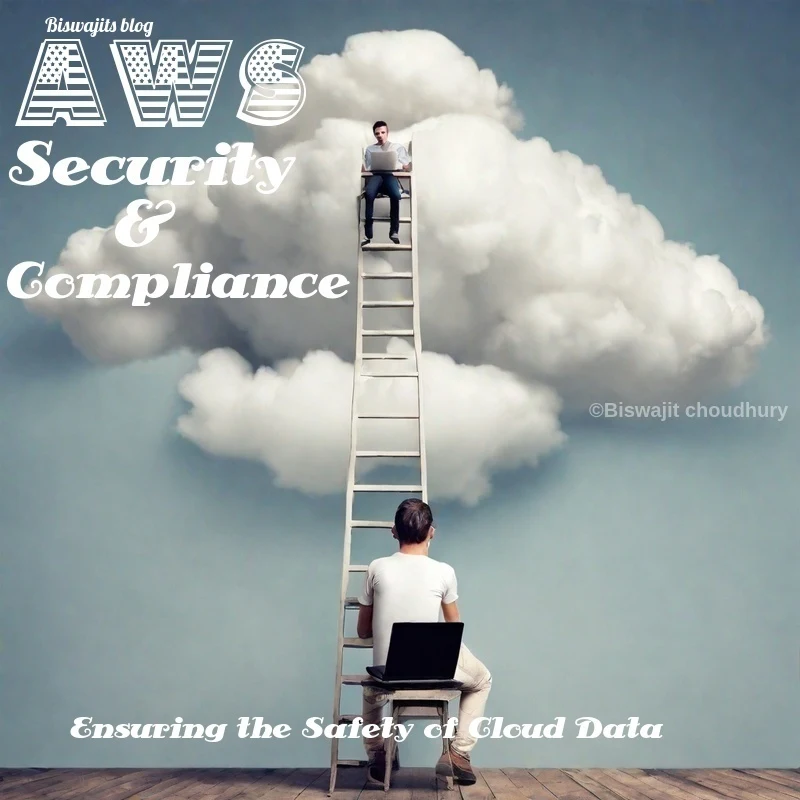
Introduction
In today's digital age, businesses are increasingly turning to cloud services to store, process, and manage their data. Amazon Web Services (AWS) has emerged as a leader in the cloud computing industry, offering a wide range of services to meet the diverse needs of organizations. While AWS provides numerous benefits, including scalability and cost-efficiency, it also necessitates a robust security and compliance strategy to safeguard sensitive data. In this blog, we will explore the key aspects of AWS security and compliance.
1. AWS Security Measures
AWS employs a multi-layered approach to security that encompasses both physical and virtual security measures. Key components of AWS security include:-
a. Data Encryption:
AWS uses encryption to protect data both in transit and at rest. AWS Key Management Service (KMS) allows users to control and manage encryption keys.
b. Identity and Access Management (IAM):
IAM enables organizations to manage user permissions and control access to AWS resources. By assigning specific permissions, organizations can ensure only authorized personnel can access certain resources.
c. Network Security:
AWS provides Virtual Private Cloud (VPC) to create isolated network environments. Security Groups and Network ACLs offer fine-grained control over inbound and outbound traffic.
d. DDoS Mitigation:
AWS Shield safeguards against Distributed Denial of Service (DDoS) attacks, protecting applications from being overwhelmed by malicious traffic.
e. Security Monitoring:
AWS offers services like Amazon CloudWatch, which allows organizations to monitor their infrastructure in real-time and set up alarms for suspicious activities.
READ MORE2. AWS Compliance Framework
AWS has designed its services to align with various compliance standards and certifications, which are critical for organizations operating in regulated industries. These include:-
a. PCI DSS: Payment Card Industry Data Security Standard (PCI DSS) compliance ensures the secure processing of credit card information.
b. HIPAA: Health Insurance Portability and Accountability Act (HIPAA) compliance is essential for healthcare organizations to protect sensitive patient data.
c. GDPR: General Data Protection Regulation (GDPR) compliance is vital for organizations dealing with European customer data.
d. ISO 27001: ISO 27001 certification attests to AWS's commitment to information security management.
e. FedRAMP: The Federal Risk and Authorization Management Program (FedRAMP) compliance is crucial for organizations that work with U.S. government agencies.
READ MORE
3. Shared Responsibility Model
AWS follows a shared responsibility model, which means that both AWS and the customer are responsible for specific aspects of security. AWS is responsible for the security "of" the cloud, while customers are responsible for the security "in" the cloud. This division of responsibilities means customers must configure their resources and applications securely within the AWS environment.
READ MORE
4. Best Practices for AWS Security and Compliance
To ensure robust security and compliance in AWS, organizations should:-
a. Regularly update their security policies and configurations to adapt to evolving threats and regulations.
b. Use AWS's security services and features to enhance their own security posture.
c. Train their personnel in AWS security best practices to reduce the risk of human error.
d. Regularly conduct security audits and assessments to identify vulnerabilities.
e. Collaborate with AWS security partners for additional layers of protection.
Conclusion
Security and compliance are paramount in the world of cloud computing, and AWS is no exception. With a comprehensive set of security measures, a commitment to compliance standards, and a shared responsibility model, AWS provides a secure foundation for organizations to build upon. By following best practices and staying up-to-date with AWS's evolving security features, businesses can confidently harness the power of AWS while safeguarding their data.

Comments
Post a Comment